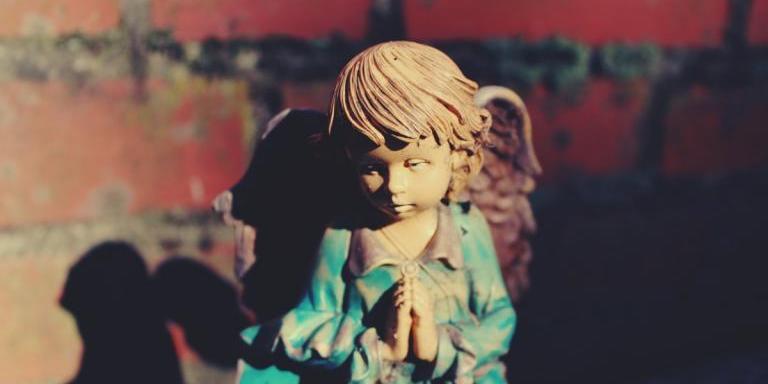Not long ago, I assumed my spot in my favorite coffee shop to work on final edits for A Complicated Pregnancy (subtitle yet to be decided), my forthcoming book about the virgin birth.

I overheard two college-aged students discussing religion.
The young man was a tried and true skeptic of religion, with a particular distaste for Christianity. He laid out a series of popular skeptical arguments against Christianity—and against religion in general.
Religion is an opiate for the masses! Christianity is mythology, like every other religion! The Bible is an ancient and severely flawed book! And so on. The woman employed her apologetic training, listening patiently to his arguments and responding with bits and pieces of rebuttal she’d learned in youth group or from apologetic books
My ears perked up when they got to the topic of the virgin birth.
The skeptic had just seen a daytime talk-show in which a 20-something woman believed she was the recipient of a divine conception. She said was pregnant—but was also a virgin.
The atheist friend saw a great analogy between this talk-show featured woman and the mother of Jesus.
“This woman was obviously blaming God for something she did. Isn’t this what’s really going on with the virgin birth? An elaborate cover-up for an indiscretion. You know, so Mary wouldn’t get stoned for her crime.”
He kept on, as if he had her on the ropes.
“And what about all those other famous dudes that supposedly had miraculous births? Why should we believe the Jesus version? And look at all the contradictions: you’d think they’d get their story straight. Why didn’t they check with each other before writing this stuff down?”
The Christian countered as best she could: “The virgin birth is in the Bible. The Bible is God’s perfect revelation. We need to accept and believe this miracle came from God. There may be difficulties, but that just means we have to—no, we get to—exercise faith.”
At the next lull in their debate, I gathered up all the extroversion I could muster and made my way over to the couple.
I asked the skeptic, “Would you find Christianity more compelling if you didn’t need to believe in a literal virgin birth to be a Christian?”
“No,” he quickly answered. “It wouldn’t change anything. There’s all that crazy Old Testament stuff, too…”
Then I turned to the Christian: “Do you think people need to believe in the virgin birth to consider themselves Christian?”
“Absolutely,” she said. The virgin birth is essential to our understanding of Jesus Christ. If we don’t accept everything the Bible teaches about him, then we don’t believe in the real Christ and full salvation.”
These two young evangelists for their “side” represent ends of a continuum, drastically opposite answers to a very complicated question.
They illustrate a false dilemma, an “all or nothing.” For both the skeptic and the conservative Christian, it’s pointless to take a fresh look at the virgin birth stories. Either the virgin birth stands as an immovable foundation for Christianity and can’t be revisited, or the virgin birth doesn’t matter anyway because Christianity has lived past its expiration date.
There’s got to be a better way. There’s a “big middle” there that Christians need to explore.
That’s what my book is about.











